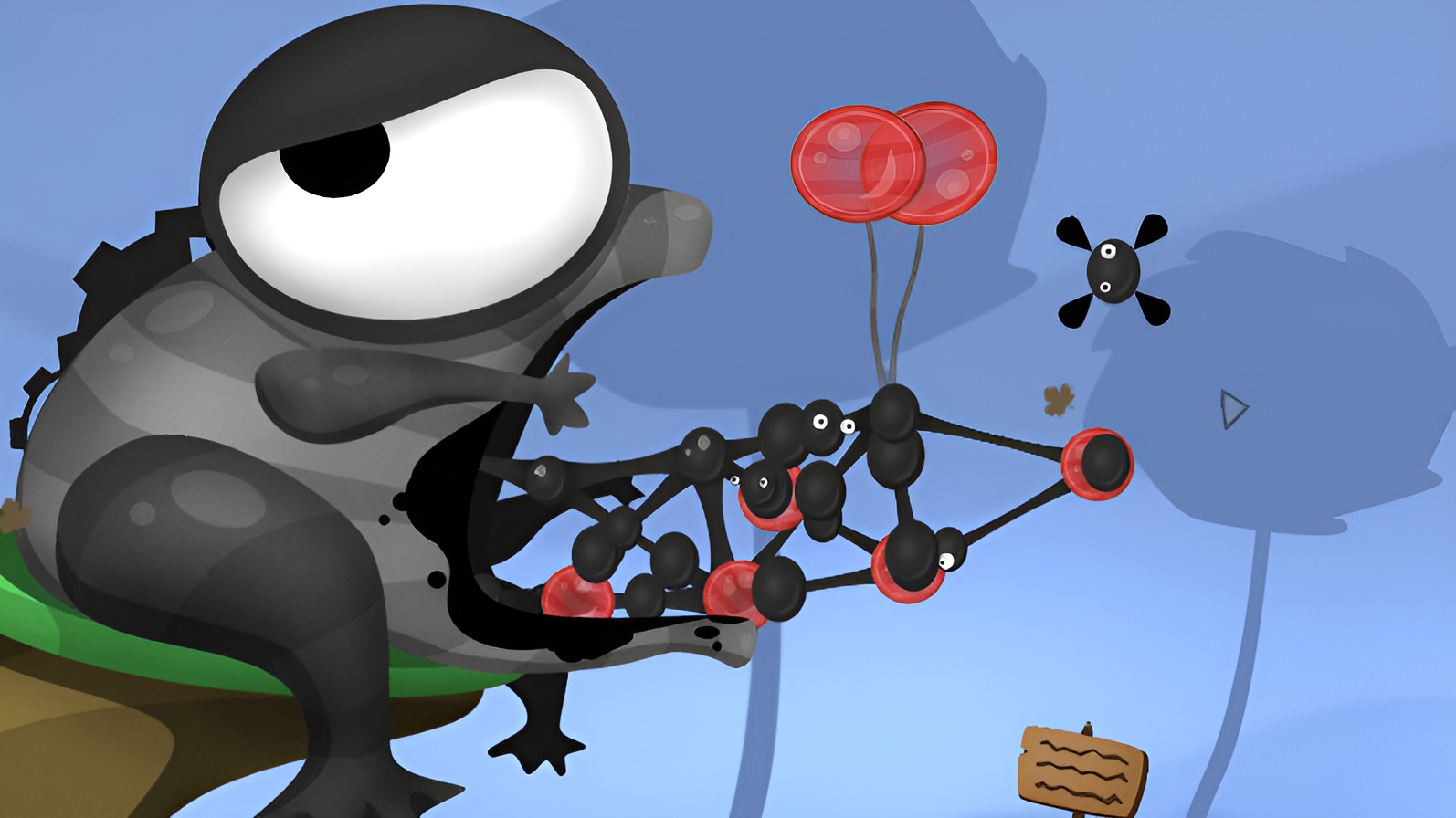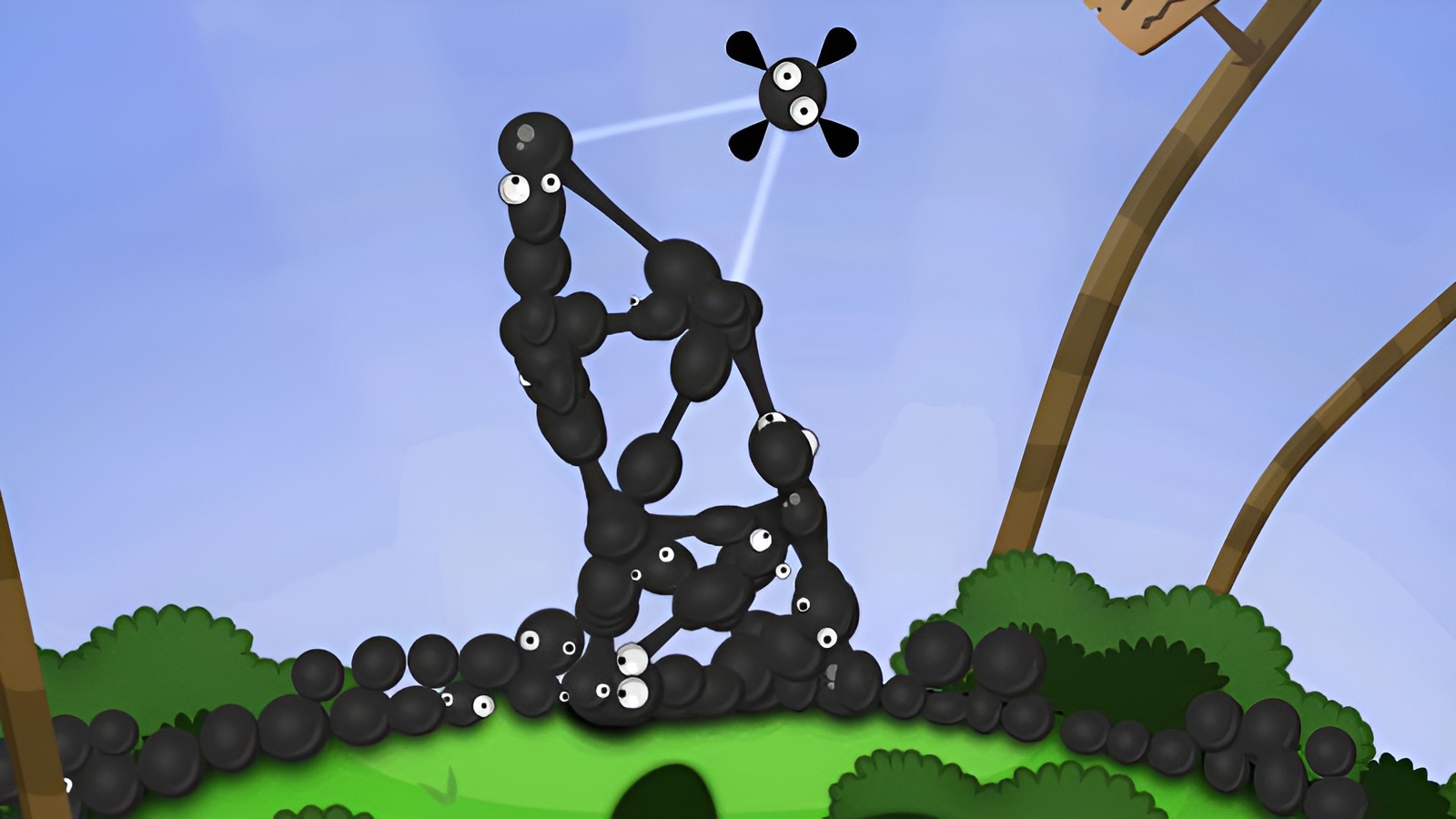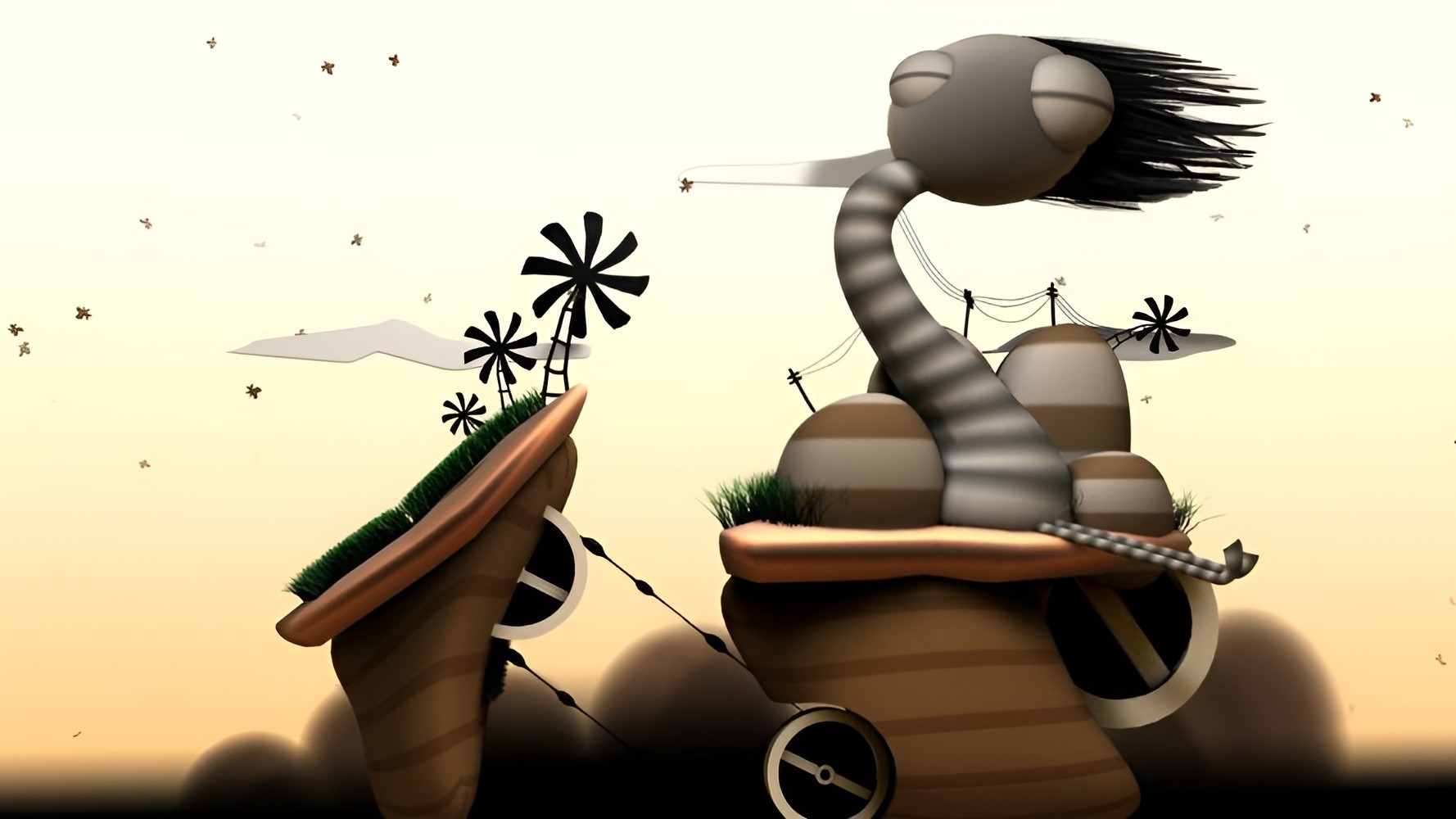
The annual The Game Awards event that rolls around every December is always where some of the most exciting new games get announced by their developers, and this year's show was no exception. Between Arkane Lyon's bombshell reveal of Marvel's Blade, the unveiling of a new adventure game called Light No Fire from No Man's Sky developer Hello Games, a shadow drop of the destruction-heavy multiplayer FPS The Finals, and tons of other big-name announcements, the presentation gave gamers plenty of titles to get hyped about and look forward to.
What had me nearly falling out of my chair as I was live blogging the show, though, was the surprise reveal of World of Goo 2. It's a sequel to — you guessed it — World of Goo, a critically acclaimed 2008 physics puzzler from 2D Boy that grew quite popular, making it one of the first ever "indie darlings."
I absolutely loved playing through the game when I was younger, and have many fond memories of defiantly staying up late on school nights to try and complete the humorously named Obsessive Completion Distinction (or, OCD) challenges you could attempt on each of its levels. There's a good chance you've heard of or played it too if you were gaming during the late 2000s and early 2010s, but if you haven't, allow me to lay out exactly what makes World of Goo so special, and why the news of a second game comes as such a surprise.

So, the premise here is both simple and wonderfully silly: After mysterious pipes burst out of the earth all over an unknown world, millions of living balls of goo that slumber there wake, driven to reach the pipelines and explore where they lead by an innocent curiosity. Unfortunately for them, paths to the pipes are cut off by obstacles like chasms, spikes, and good ol' gravity, among others; to help them bypass these dangers, you'll need to stretch out the goo balls and attach them to each other, creating wonky triangle-based structures with their "legs" that serve as a web for other goo balls to travel along. And once you build up your contraption to a pipe, it'll suck up all the remaining goo and you'll complete the stage — provided you've got enough goo balls left to meet its requirements.
It's a straightforward gameplay concept that anyone can pick up and understand, but since both the goo balls and the formations you assemble with them are fully affected by physics, it also ends up being a remarkably clever one. Balance, weight, and even the wind are all things you'll have to take into account as you build your bridges and towers, and things only get trickier as new levels force you to think outside the box to deal with their increasingly complex hazards.
You'll also start to encounter new types of goo balls as you progress through World of Goo's 48 courses, and using their unique capabilities together wisely is required for success. For example, white goo can attach to four different points instead of two, making it excellent for the creation of large, stable structures. Water goo, meanwhile, only attaches to one, so it's perfect for making thin and long chains that extend far and swing. Over the course of the game, you'll come across about 10 different goo types in total.

Like most puzzle games, it can get a bit frustrating at times, but I find it impossible to go more than a few minutes without smiling or chuckling at it during even the toughest of levels. Its quirky and colorful 2D art style is incredibly charming, and most of the time, helpful hints on signs from "The Sign Painter" double as amusing, well-written jokes. Then there's the high-pitched, incoherent babbling that the goo balls make whenever you pick them up, and the goofy little cheers of happiness they give as you build them a route to each stage's exit. You just can't stay mad at it for long, and that's something I can't say for most games in this genre.
Complementing it all is World of Goo's narrative, which is significantly more satirical and biting than its bright, comical presentation would have you believe. No specific spoilers here, but beneath the layers of silliness and witty humor, there are pointed criticisms of consumerism and unrestrained capitalism that feel just as poignant now — perhaps more so — as they did back when 2D Boy released the game.
All in all, it's one of the smartest and most enjoyable games I've ever played, and easily one of the best PC games for folks that enjoy puzzle titles. Yet, despite its quality and success, I'd previously given up hope that we'd see a second installment. It's been 15 years since World of Goo released, after all, and before the sequel announcement at The Game Awards 2023, there wasn't a lick of news about a new game in the series. Until a week-and-a-half ago, most fans probably believed it would never come.
That's why the out of left field reveal of World of Goo 2 was such a shock, with an even bigger surprise being the fact that it's scheduled to launch sometime in 2024. 2D Boy's developers, now part of the indie studio Tomorrow Corporation known for making Little Inferno, Human Resource Machine, and 7 Billion Humans, are putting together what they call "the biggest game we've ever made" with this sequel. And if the trailer shown at The Game Awards (you can watch it with the embed above) is anything to go by, it's looking like it'll be the follow-up that I and many other World of Goo fans have been dreaming of.
It's not clear what systems World of Goo 2 will be available on yet — its FAQ amusingly says we should "let the vast expanse of uncertainty fill our hearts with wonder, while we fill our bank accounts with exclusive distribution contracts" — but releases on Windows PC via Steam and GOG seem likely, as do appearances on Nintendo Switch and mobile based on relaunches of the original game that've come in recent years. It might come to Xbox and PlayStation, too, but ultimately, only time will tell.
If you've never played World of Goo, you can pick it up for $15 on PC through Steam or GOG or $10 on Nintendo Switch. You can also play a remastered edition of the game that doubles the resolution of its visuals through the App Store (iOS) or Google Play Store (Android), provided you've got a Netflix subscription.







